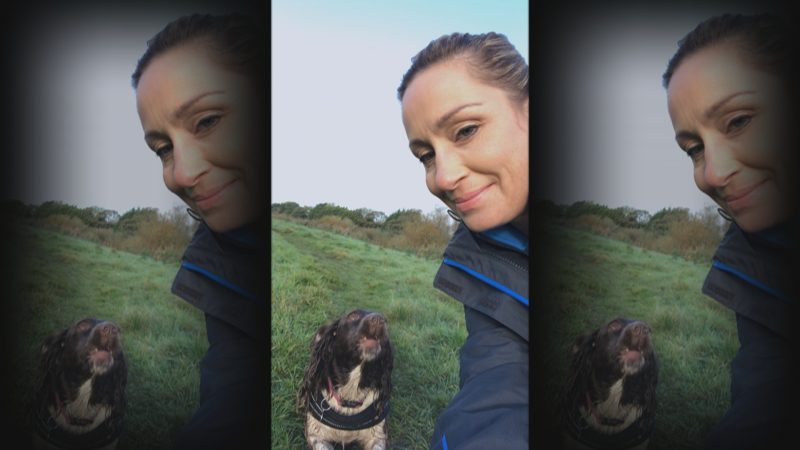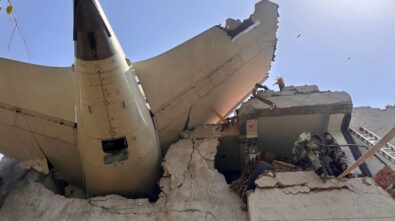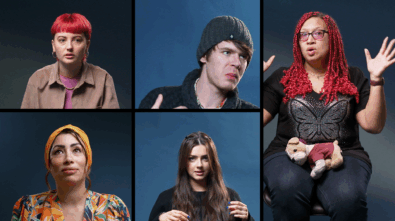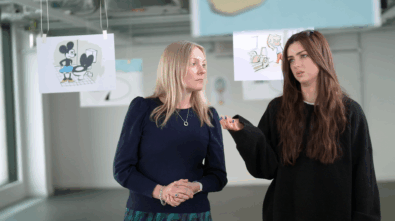James Rogan and Rachel Lob-Levyt talk through capturing individual experiences in BBC1’s The Search for Nicola Bulley
Broadcast, Marian McHugh • 3rd October 2024

“For this story specifically, it would be unthinkable to make this documentary without Nicola Bulley’s family,” says James Rogan.
Rogan is the executive producer on the single, which offers a comprehensive insight into the events surrounding the 45-year-old’s mysterious disappearance in January last year. Her vanishing sparked a frenzy both in the traditional media and online, where ‘social media sleuths’ hindered the police investigation and spread baseless rumours about her partner, Paul Ansell. Nicola’s body was eventually recovered from the River Wyre in Lancashire three weeks later and her death was ruled an accidental drowning.
With such misinformation and sensitive subject matter to handle, Rogan can’t understate the importance of having her loved ones involved in the hour-long film.
The Search for Nicola Bulley features interviews with her parents, sister and Ansell, as well as police investigators, journalists and some of the online sleuths who shared their thoughts on the case with their followers.
Rogan says the film felt necessary because “Nicola became lost” in the media storm that followed her disappearance and there was a “deep public interest” in exploring how that happened. However, her family members were “wary” of the media when the indie initially approached them, he says, noting their public criticisms of press intrusion.
Rogan and his team laid out they wanted to tell Nicola’s story from a different perspective and the film would offer them the chance to share their experience of the events that unfolded last year.
“We told them: ‘the thing that was taken away during that period was your ability to tell your story. If there’s a value in that, then we should have a conversation’,” he recounts.
“As so often in these cases, they tentatively came to that conversation and then many conversations followed. It seemed pretty clear her family had been silenced in some ways – and the film shows this.”
The Bulleys and Ansell saw the documentary as a tribute to Nicola and a means of re-centring her in her own story, Rogan says, countering speculation about her death, which continues to this day.
“The scrutiny on the case never stopped, so they’re looking at a future in which people would be speculating forever about Nicola Bulley,” he adds.
“They made a brave decision to say: ‘If we speak out and explain what it’s like to be in the centre of this storm, maybe it will be a little less bad for the next people who find themselves in this position’. That courage and togetherness was quite inspiring.”
Director Rachel Lob-Levyt tells Broadcast she set about building a “real, human” relationship of trust with Nicola’s family, simply by spending time with them and talking about “all sorts”, not necessarily about the three-week period surrounding Nicola’s death. It was important the family got to know the production team “as people”, Lob-Levyt notes.
Another key foundation was transparency: keeping the family informed of the filmmaking process so they wouldn’t be surprised by elements, from the day of filming the interviews all the way through to the editing process – and their viewing of the final film.
“In that three-week period, so much had been taken out of their control. Giving them a full understanding of how everything would unfold was reassuring,” she explains. “I think those two things combined meant they felt they were in a different space with us than they had been with the media previously.”
In the film, the Bulleys and Ansall still seem shaken by the events, and their “very raw and recent” experiences required careful duty-of-care handling, Lob-Levyt says.
As part of this, the team checked in with them regularly and offered them counselling throughout the process.
“They wanted this to be the definitive account of what happened to them and to Nicola, so I definitely felt an extra sense of responsibility to get it right, both in the process but also in the final film,” she says.
Rogan hopes that by giving her family this platform to own their story, it will now allow them to “be left alone” by those who continue to scrutinise Nicola’s case to this day.
‘Consider the consequences’
One message Rogan hopes the film will encourage, is for viewers to consider the impact of what they post online and whether it needs to be shared at all.
“Take a breath. There are real world consequences today in our online existences and they can make traumas worse,” he warns.
Lob-Levyt agrees, adding she hopes the documentary can provide the empathy that was absent from the public following Nicola’s disappearance. She says the public seemed to view the whole thing as a “drama” rather than as a woman with a family who has gone missing.
“If this does ever happen again, I would hope that all of us think before making assumptions, before clicking on something, or accepting something we’ve seen online as fact,” she explains.
Both Rogan and Lob-Levyt observed the strength of the bond between the Bulleys and Ansell, when making the doc.
“We’ve made a lot of films and often the trauma that families go through scatters them and that breaks my heart,” says Rogan. “It was a beautiful thing to see them come together. They were piecing their lives back together and piecing back their memories of Nicola.”
Lob-Levyt adds: “What really sticks with me is the warmth, strength and love in that family. Even in the darkest times, people can be wonderful.”



